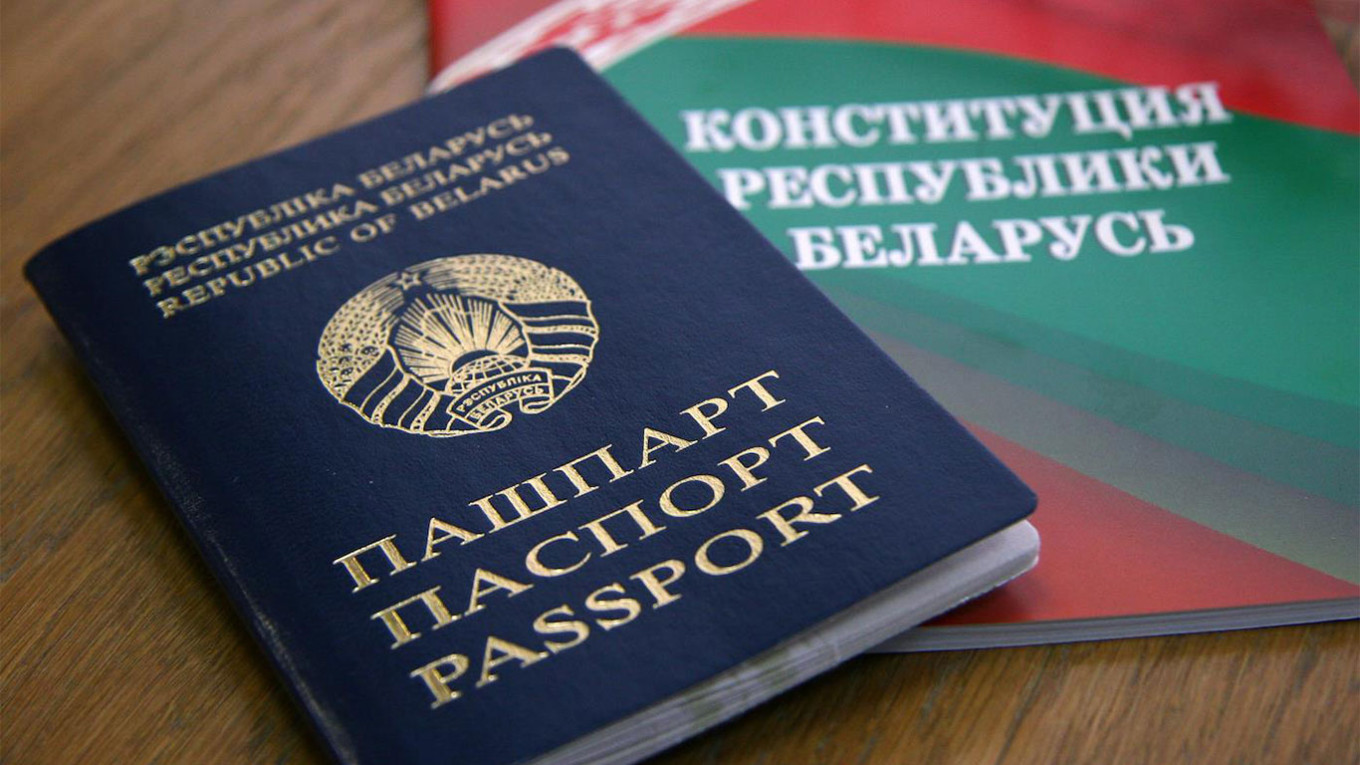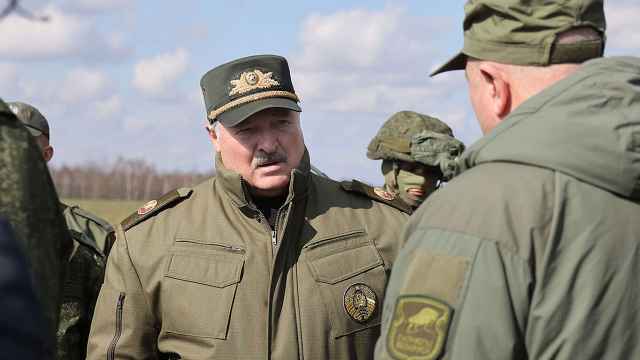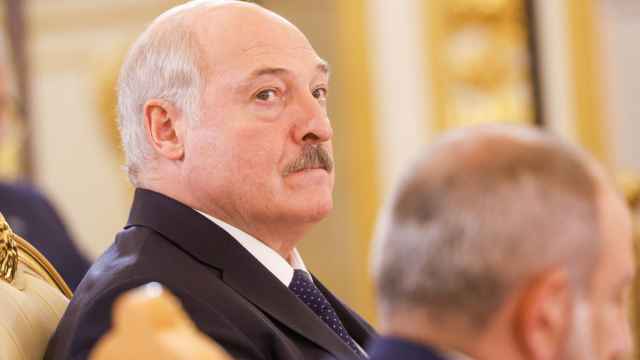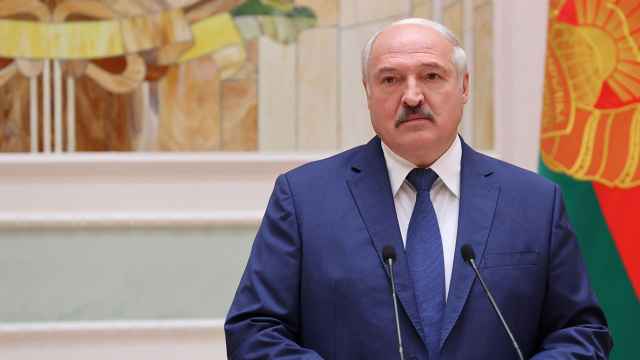Exiled opponents of Belarusian President Alexander Lukashenko have found their position made even more vulnerable after Minsk rammed through a decree barring citizens from renewing their passports abroad. The exiled leader of Belarus’ democratic forces, Svetlana Tsikhanovskaya, accused Minsk of exacting “revenge” on dissidents who fled the regime, and of trying to force them back home — where a lengthy prison sentence almost certainly awaits.
The fact that this rogue regime is now denying its 3.5 million-strong diaspora basic consular services begs the question of why its embassies warrant representation on Western soil. The European Union, United States and Britain in particular are doing Belarusian nationals a massive disservice by allowing these glorified espionage dens to keep tabs on them. They have also yet to declare Lukashenko’s hired guns masquerading as ambassadors personae non-grate, as some have with Russian diplomats.
Belarus is not a signatory to the 1954 and 1961 UN Conventions on Statelessness, nor does it recognize dual nationalities. By revoking their citizenship for loosely defined “extremist conduct,” Lukashenko, already heavily sanctioned before the war due to his brutal suppression of protests against his 2020 re-election, hopes to pile more pressure onto opposition activists abroad.
Lithuania will issue “special foreigner passports” to exiled Belarusians, an interim measure that, while praiseworthy, may not fully buffer recipients against bureaucratic setbacks. Should other EU member states delay the recognition of these documents, its holders will end up facing short-term mobility constraints within the Schengen Area. Meanwhile, the Baltic states’ sizeable Belarusian community could find itself consigned to the fringes of society as its members are forced into alien status once their passports expire.
As well as revenge, Minsk has an economic incentive to force emigrants to return. Over half a million people are thought to have left Belarus since 2020, many of whom are skilled workers. Such a loss of human capital may leave Minsk with little choice but to roll out a taxation scheme to recover lost revenue from these emigres. Providing Belarusian exiles with a path to citizenship abroad will therefore not only insulate genuine asylum claimants from reprisals but also from paying into the state coffers of Russia’s staunchest ally and, by extension, funding the war in Ukraine.
Given his rumored plans to establish a dynastic political system in Belarus, Lukashenko will continue to trample on their civil liberties and subvert their democratic will as with the sham 2020 presidential election. Western powers, for their part, need to strengthen their support for Tikhanovskaya’s cause by supporting dissident media organizations and clamping down on companies that enable the regime.
There is no easy solution to the issue undocumented Belarusian emigrants now find themselves in. Simply living in a foreign country while unable to access vital healthcare and baking services due to your expired passport is its own form of torture. Pro-democracy advocates who return to Belarus risk unjust hefty jail sentences for their peaceful overseas activism. The prominent Minsk-based human rights group Viasna estimates that there are 1,510 political prisoners in the country as of Sept. 20, including five of its own members.
No matter the worthiness of their intentions, opposition figures calling for the creation of an entirely new national passport will find themselves faced with Brussels’ infamous bureaucracy. They will almost certainly face pushback from duplicitous actors — such as Hungary — with EU veto powers. Hungarian Foreign Minister Péter Szijjàrto even paid a visit to Minsk last February, in defiance of the bloc’s policy toward “Europe’s last dictatorship.” Instead, human rights groups should lobby for an expedited path to naturalization in neighboring EU states where Belarusian exiles are heavily concentrated in order to ensure their protection.
An inadequate response from the international community to Lukashenko’s latest move could see Moscow pursue a similar course of action toward the millions of Russian draft dodgers who sought refuge abroad after the Kremlin’s mobilization announcement last September. This makes the necessity of moving in to protect exiled Belarusians even greater.
Lukashenko is now as reliant on black-market maneuvering to cling onto power as the heads of South American narco-states. The war in Ukraine has seen him creep closer to Moscow for economic and political support, going as far as to host Russian nuclear warheads on his country’s soil. The EU recognizes the Belarusian leader as being complicit in Russia’s war, making it even more urgent that they crack down on his regime and protect dissidents abroad.
Minsk has rightly been spurned by its European neighbors. Poland, Lithuania and Latvia have curbed imports, militarized their borders with Belarus and advised their nationals against traveling there in an effort to deprive the regime of any residual income streams. Increasing international pressure against Belarus which takes aim at its ruling elite as well as any third parties used by Minsk to evade sanctions is the West’s best bet to unseat an autocratic thug who is intent on suppressing the will of his people.
A Message from The Moscow Times:
Dear readers,
We are facing unprecedented challenges. Russia's Prosecutor General's Office has designated The Moscow Times as an "undesirable" organization, criminalizing our work and putting our staff at risk of prosecution. This follows our earlier unjust labeling as a "foreign agent."
These actions are direct attempts to silence independent journalism in Russia. The authorities claim our work "discredits the decisions of the Russian leadership." We see things differently: we strive to provide accurate, unbiased reporting on Russia.
We, the journalists of The Moscow Times, refuse to be silenced. But to continue our work, we need your help.
Your support, no matter how small, makes a world of difference. If you can, please support us monthly starting from just $2. It's quick to set up, and every contribution makes a significant impact.
By supporting The Moscow Times, you're defending open, independent journalism in the face of repression. Thank you for standing with us.
Remind me later.






